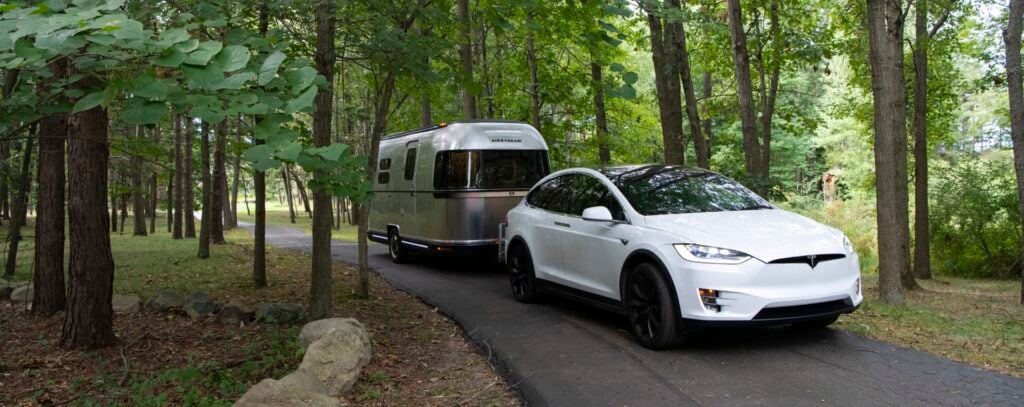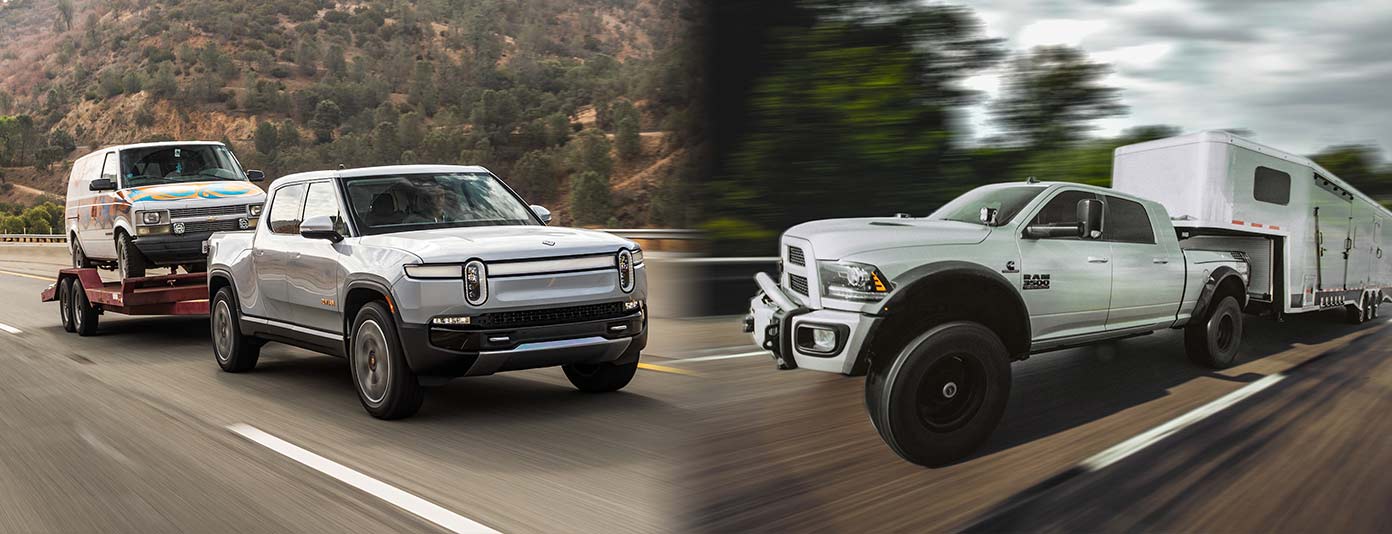Recently, I stumbled upon an article that led me to think about Motor Trend’s evolution over the years. Back in the day, say about 5 to 10 years ago, Motor Trend was the go-to platform for automobile enthusiasts. The magazine was known for featuring cool stuff, be it hot rods, sleek trucks, or nifty car builds. It showcased the latest models of Camaro, Mustang, and other intriguing automobile pieces. However, it appears now as though they might have a somewhat different agenda.
So, when I came across this article titled “You’re being lied to about Electric Cars,” it immediately piqued my interest. The subtitle, implying that EVs are better for humans despite common misconceptions, felt like a slight jab toward internal combustion engine enthusiasts.
Let me clarify that I have no issues with electric vehicle – BUT I am a firm believer in the power and charm of internal combustion engines, a passion that originated from my early childhood. What concerns me is the massive push towards electric vehicles under the assumption that they will perform exactly the same, if not better, than traditional vehicles, and that they’re inherently better for the environment.
The narrative often painted suggests that all the kinks with electric vehicles have been worked out and that they’re ready for prime time. Yet, it feels disingenuous. The reality, in my view, is that electric vehicles are still evolving, they’re not perfect yet, and may not be suitable for everyone.
One point from the article that particularly struck me was the claim about electric vehicles losing half their range when towing, and comparing it with gasoline or Diesel trucks. Based on personal experience with my 2021 fully emissions intact stock diesel truck, I can say that towing doesn’t cut my truck’s mileage in half. In fact, even half the range of my Diesel truck after a full tank far surpasses what an electric vehicle can offer.
The article further delves into the concept of indirect emissions, associated with the manufacturing process of internal combustion engines. Interestingly, they gloss over the crucial matter of cobalt mining, which is a significant environmental concern with electric vehicle batteries.
Motor Trend’s shift in focus seems even more apparent with the F-150 Lightning being named the MotorTrend Truck of the Year, despite multiple unfavorable reviews that I’ve come across. The essence of being an automobile enthusiast, for me, is not just about driving but about the emotional connection with the vehicle – the roar of the engine, the feel of the torque, the thrill of the ride. While electric vehicles may offer their own advantages, they can’t replace that distinct feeling that comes with traditional vehicles. And that’s why it feels like Motor Trend, a platform that once resonated so strongly with automobile enthusiasts, may be moving in a direction that no longer aligns with those same passions.
Now, let’s put things into perspective here. The Ford F-150 Lightning is undoubtedly an impressive feat of technology, yet there have been hiccups along the way – most notably, issues with the battery pack that have temporarily halted its production. This development understandably raised some eyebrows, not least of all mine. I found myself echoing the sentiment expressed in the conversation: how can a truck that is currently unattainable due to production issues earn the coveted title of Truck of the Year?
I’ve always appreciated the power and ruggedness of vehicles like the Ford Super Duty F-250 or F-350. With their impressive horsepower, torque, and towing capabilities, they seem more fitting for such a title, at least from a traditionalist’s standpoint. So, to see an electric truck clinch the title left me questioning the selection criteria and whether there was an underlying electric vehicle (EV) bias.
The future of EVs in the realm of towing. For many of us who are keen on camping and outdoor adventures, towing capabilities matter. That’s why I couldn’t help but be intrigued by the mention of an upcoming product from Airstream: the ‘etrailer’. This etrailer is meant to address the common range reduction issue experienced when towing with an EV, boasting its own battery pack and motors. It promises to restore the range lost when an EV tows a trailer. Now, as innovative as that sounds, there are concerns to address. Given Airstream’s reputation for high-end, albeit pricy products, one wonders if cost might be a barrier to adoption.

As I sat down to crunch some numbers, the disparity between the price tag of a diesel truck versus an all-electric Ford F-150 Lightning struck me. Having looked up the price for a base model F-150 Lightning, equipped with an extended travel battery pack (also referred to as the long-range pack), I was taken aback. The base price came in at a whopping $85,000.
Do a quick Google search, and you’ll see that the Airstream “etrailer” can set you back close to $200,000. So, just like that, we’re talking about a camping setup that could potentially cost you $285,000.
Now let’s shift gears and talk about my current setup. I own a relatively new three-quarter-ton diesel truck which cost me around $60,000. This robust beast boasts a 50-gallon fuel tank and is designed to perform even in the most challenging conditions. My camping companion is a toy hauler trailer, the smallest we could find that can comfortably fit a four-seater and also comes equipped with a generator among other features. This trailer cost me another $60,000. That brings me to a $120,000 setup.
So, if we do a quick comparison, we can see a staggering difference in cost between the electric setup and my diesel setup. In fact, I calculated that I could fill my truck up a whopping 725 times ($4.50/gal) and drive nearly 550,000 miles with my trailer before I’d even come close to matching the cost of the all-electric setup.
Another factor that plays heavily into my decision to stick with my diesel truck over an electric one is the convenience and time-efficiency it offers. With most of us juggling our love for outdoor adventures with our nine-to-five jobs, we often only have a two-day weekend to spare. When time is of the essence, every minute, every second counts.
In the grand scheme of things, the apparent cost-effectiveness, convenience, and reliability of a diesel truck make it a more practical choice for me, at least for now. As much as I am intrigued by the prospect of embracing cleaner, greener technology, the financial implications and practicalities surrounding it can’t be ignored. We have a long road ahead before electric vehicles can truly match or outperform their traditional counterparts in every aspect, cost included.
For now, you’ll still find me behind the wheel of a diesel truck towing heavy loads long distances without worrying about fuel economy or range.


You totally hit the nail on the head!!!
EVs will never be more efficient until they are self powered electrically!!
They do have awesome torque from electric motors but the voltage/battery doesn’t fly!
I am in the 6 year process of a 93 ford crew cab long bed ground up restoration with a 12v conversion and this will be the traveling truck! I can’t wait to finish it, long process of fabricating suspension and everything to fit this 97 5.9 12v compound beats in the chassis! It will live again!!!
Thanks everyone at DPP!
I can send picks if you would like on this ultimate build! You will crap your paints!!
Hahaha. Over & out for now👍
Nobody mentioned the cost of charging the EV batteries. I have 48 solar panels on my roof and since the local utility raised their rates to pay for their wildfire rebuild I now pay about $200 /month for electricity without charging an EV. In England it cost more to charge a Tesla than to fillup a Landrover with gas